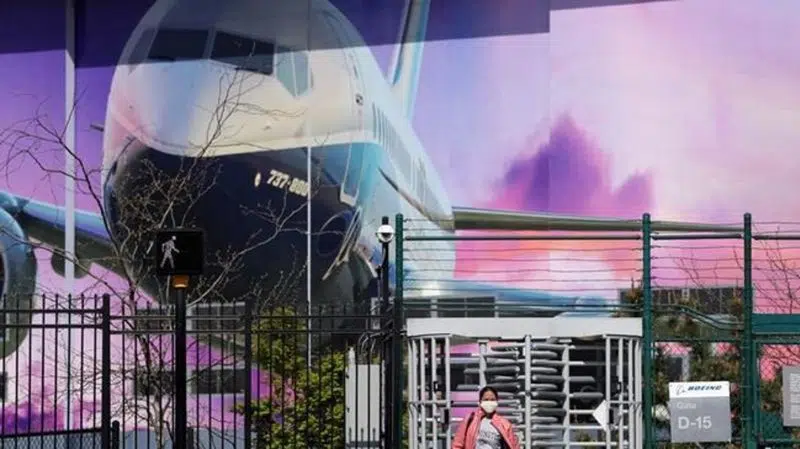
Work resuming at Boeing plants following virus shutdown
SEATTLE — Boeing this week is restarting production of commercial airplanes in the Seattle area, putting about 27,000 people back to work after operations were halted because of the coronavirus.
The aerospace giant says it is taking extra precautions and has instituted comprehensive procedures at all of its sites to fight the spread of COVID-19. The new virus-slowing measures will include the use of face masks and other protective equipment, hand-washing sites, staggered shift times and employee wellness checks
Employees for the 737, 747, 767 and 777 airplanes were to return to work as early as Monday with most starting by Tuesday, officials said. Employees for the company’s 787 program will return next Thursday and Friday.
Boeing’s shutdown went into effect March 25 after workers tested positive for the virus and a longtime inspector for the company died.
